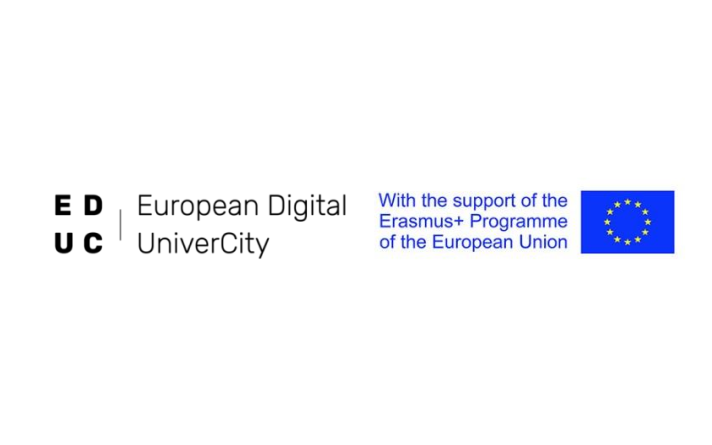EDUC - European Digital UniverCity
Project ID
612442-EPP-1-2019-1-DE-EPPKA2-EUR-UNIV
Project title
European Digital UniverCity
Project manager, contact details
Márton Béres, beres.marton@pte.hu
Academic supervisor, contact details
István Tarrósy, Dr., tarrosy.istvan@pte.hu
Total project budget
6.247.388,43 EUR
Total budget of UP
558.071 EUR (80% EU contribution, 20% National contribution)
Project start date
Project end date
Coordinator
Universitaet Potsdam (DE)

Partner Organisations
Universita Degli Studi di Cagliari (IT), Masarykova Univerzita (CZ), Universite Paris Nanterre (FR), Universite de Rennes I (FR), University of Pécs (HU)
General description
By 2022, European Digital UniverCity (EDUC) will have built its foundations to guarantee a sustainable cooperation between its six members, a sustainable common structure and tools to test innovative pedagogies. The joint governance model and common tools will enable EDUC members to address structural and societal challenges they would not be able to tackle on their own.
EDUC aims to form a community of practice which will firstly be able to make implicit knowledge and practices visible and secondly to transform them into explicit information and common practices. This will help to lower formal barriers and grant accessibility to get students, lecturers and staff involved in on-going communication and interaction processes. Exchanges and collaborations will lead to mutual understanding and widening of individual horizons as well as promote sensitivity for diversity. Interconnectedness and interdependencies will result from interlinked processes and structures, which will be the basis for the community of practice.
Indeed, EDUC’s long-term ambition is to reinforce European identity as well as strengthen the European identification process by enhancing knowledge creation and by putting forward European skills acquisition. EDUC wants to contribute to the progress of the Bologna process by setting up a new mobile and inclusive European Higher Education community that relies on innovative pedagogies and digital tools and by proposing new forms of cooperation.
Program
ERASMUS +
Application monitoring
